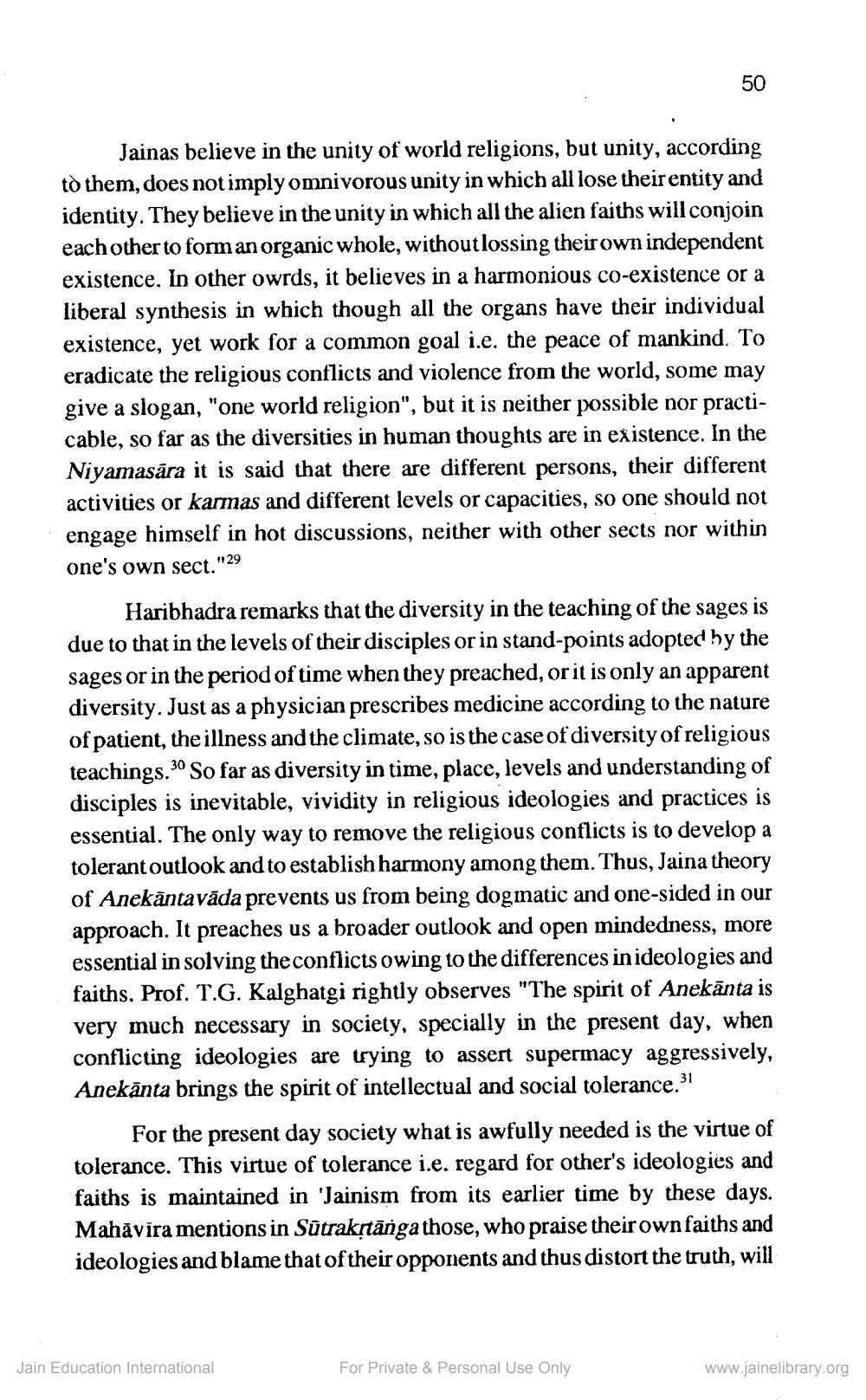________________
50
Jainas believe in the unity of world religions, but unity, according to them, does not imply omnivorous unity in which all lose their entity and identity. They believe in the unity in which all the alien faiths will conjoin each other to form an organic whole, without lossing their own independent existence. In other owrds, it believes in a harmonious co-existence or a liberal synthesis in which though all the organs have their individual existence, yet work for a common goal i.e. the peace of mankind. To eradicate the religious conflicts and violence from the world, some may give a slogan, "one world religion", but it is neither possible nor practicable, so far as the diversities in human thoughts are in existence. In the Niyamasāra it is said that there are different persons, their different activities or karmas and different levels or capacities, so one should not engage himself in hot discussions, neither with other sects nor within one's own sect."29
Haribhadra remarks that the diversity in the teaching of the sages is due to that in the levels of their disciples or in stand-points adopted by the sages or in the period of time when they preached, or it is only an apparent diversity. Just as a physician prescribes medicine according to the nature of patient, the illness and the climate, so is the case of diversity of religious teachings.30 So far as diversity in time, place, levels and understanding of disciples is inevitable, vividity in religious ideologies and practices is essential. The only way to remove the religious conflicts is to develop a tolerantoutlook and to establish harmony among them. Thus, Jaina theory of Anekāntavāda prevents us from being dogmatic and one-sided in our approach. It preaches us a broader outlook and open mindedness, more essential in solving the conflicts owing to the differences in ideologies and faiths. Prof. T.G. Kalghatgi rightly observes "The spirit of Anekānta is very much necessary in society, specially in the present day, when conflicting ideologies are trying to assert supermacy aggressively, Anekānta brings the spirit of intellectual and social tolerance.31
For the present day society what is awfully needed is the virtue of tolerance. This virtue of tolerance i.e. regard for other's ideologies and faiths is maintained in 'Jainism from its earlier time by these days. Mahāvīra mentions in Sūtrakrtānga those, who praise their own faiths and ideologies and blame that of their opponents and thus distort the truth, will
Jain Education International
For Private & Personal Use Only
www.jainelibrary.org




